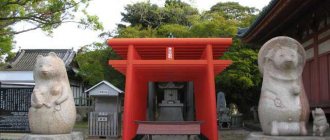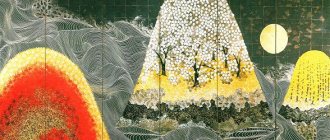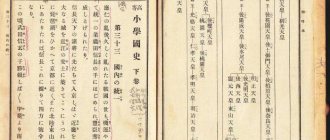This Russian-Japanese phrasebook with pronunciation and transcription includes common words and expressions for everyday communication: standard phrases of greetings, thanks, questions, requests, a set of words for communication in shops, restaurants, hotels, orientation in a new and unfamiliar place and much more.
Typically, English is used for communication in the tourism industry. At the same time, knowing and using common polite phrases that the Japanese phrasebook offers will help establish contact and earn the respect of the local population.
In the Russian-Japanese phrasebook for tourists, pronunciation is given based on transcription. The colon indicates the longitude of the sound. For convenience, you can download the Russian-Japanese phrasebook for free in pdf format.
Greetings
| Good morning | O-hayo: gozaimas |
| Good afternoon | Konnichiwa |
| Good evening | Konbanwa |
| Hello how are you doing? | Konnichiwa, do: des-ka? |
| How are you doing? | Go-kigen ikaga des-ka? |
| How are you? | De anata-wa ikaga des-ka? |
| OK, thank you | Arigato, genki des |
| How are you? | Before: des-ka? |
| Still | Aikawarazu des |
| So-so | Ma: ma des |
| Hello! | I:! |
| Welcome! | Yo: askew! |
| Glad to see you | O-aisite ureshii |
| See you! | Jya: mata |
| Goodbye | Sayo: nara |
| Good night | O yasmi nasai |
| Till tomorrow | Mata Ashita |
| Best wishes | Dewa o-daiji-ni |
| take care of yourself | Deva o-karada-o taisetsu-ni |
| I have to go | Oitoma simas |
Standard phrases
| Thank you very much | Do: mo arigato: gozaimas |
| Thank you | Taihen arigato: gozaimas |
| My pleasure | Before: itashimashite |
| Do not mention it | O-rei niwa oyobimasen |
| Nothing, don't worry | Nandemo arimasen |
| Thanks for the service | Go-kuro: deshita sama |
| thanks for the invitation | Go-sho: tai arigato: gozaimas |
| Sorry (excuse me), please | Shitsurei (sumimasen) |
| What is your name? | Nan toyu: o-namae des-ka? |
| Tell me please | Chotto sumimasen ga |
| Please pass | O-hairi kudasai |
| Here please | Do: zo kotirae do: zo |
| Let me introduce myself, I | Jikosho: kai sasete itadakimas, watashi-wa |
| Meet me please | Do: zō o-chikazuki-ni natte kudasai |
| Glad to meet you | Hajimemashite |
| Very nice | O-mi-ni kakarete ureshii des |
| What is your first and last name? | O-namae to myo: ji-wa nan-to iimas-ka? |
| My last name is my name | Watakushi-wa sei-wa, namae-wa Mo: simas |
| Excuse me, please | Gomen nasai |
| Excuse me, please | Shitsurei des ga |
| I'm sorry | O-wabi itashimas |
| Thank you for your hospitality | Go-shinsetsu arigato |
| Thank you | Arigato (gozaimas) |
| Please! | Before: dzo |
| Do not mention it | Doitasimaste |
| Congratulations! | Omedit! |
| Thank you for everything! | Iroiro to do: mo arigato |
| Can `t you help me? | Onegai itashimas |
| Sorry to bother you | Was sumimasen desyta |
| Congratulations | Omadeto: gozaimas |
| I want to invite you to Russia | Rosia ni go-sho: tai sitai to omoimas |
| I want to invite you to a restaurant | Resutoran ni go-sho: tai sitai to omoimas |
| Come with us to... | ...ni isshoni ikimasen-ka? |
| Thank you for your help (for your cooperation) | Go-kyo: ryoku arigato: gozaimas |
| thanks for the gift | Presento arigato: gozaimas |
| I am very obliged to you | O-seva ni narimashita |
| Unfortunately I can not | Zannen nagara dekimasen |
| What is this? | Kore wa nan des-ka? |
| Why? | Naze des-ka? |
| Where? | Doko des-ka? |
| Who is this? | Kono hito wa donata des-ka? |
| My name is | Watakushi-wa-to iimas |
| I want to drink | Nodo ga kawakimashita |
| I want to sleep | Nemui des |
| I'm hungry (I'm hungry) | O-naka ga suitimas |
| Please help me | O-tetsudai o-site kudasaru yo: o-negai shimas |
| Can | Dekimas |
| I can not | Dekimasen |
| I can go with you | Anata to isshōni iku koto ga dekimas |
| I can't go with you | Anata to isshōni iku koto ga dekimasen |
| I'm very sorry, but I can't | Zannen des ga dekimasen |
| I'm busy (I don't have time) | Watashi wa isogasi |
| I need to hurry | Isoganakereba narimasen |
| I am late | Okuremas |
| I'm lost | Miti ni majotta |
| sorry for making you wait | O-matase shimashita |
| I don't understand | Wakarimasen |
| I understand | Vacarimas |
| Please come again | Do: zo mo: ichido ashita o-ide-ni natte kudasai |
| make yourself at home | O-raku-ni do: dzo |
| Sorry | Sumimasen |
| It's OK | Give jobu des |
| I | Watashi |
| You(you) | Anata |
| He | Kare |
| She | Kanojo |
| Woman | Josei |
| Man | Dunsay |
| Husband | Shujin |
| Child | Kodomo |
| Son | Musuko |
| Daughter | Musume |
| Big | Ookiy |
| Small | Chisai |
| Hot | Atsui |
| Cold | Samui |
| Hot | Atatakai |
| Cold | Tsumetai |
| Good | Ii |
| Bad | Warui |
| What? | Nan deska? |
| When? | Itsu deska? |
| For what? | Naze? |
| Who? | Dare deska? |
| You will not say | Chotto o-ukagai shitai no des ga |
| May I ask you? | Chotto o-tazune shite mo ii des-ka? |
| Listen | Moshimosi |
| Let's take a photo together | Isshoni shashin-o torimasho |
| I have to ask you | O-negai ga arimas |
| Help me please | Tetsudatte kudasai, tasukete kudasai |
| Call a translator | Tsu: yaku-o yonde kudasai |
| Do you understand Russian (English)? | Rosyago (igirisugo)-ga arimas-ka? |
| I do not understand well | Amari wakarimasen |
| Do you speak Russian? | Rosiago-o hanashimas-ka? |
| Yes, I talk a little/no, I don’t talk | Uh, sukoshi hanashimas/ie, hanashimasen |
| I do not understand you | Anata no itte iru koto ga wakarimasen |
| Please talk slowly | Mo: sukoshi yukkuri itte kudasai |
| Sorry, please repeat again | Shitsurei des ga, mo: ichi-do itte kudasai |
| I don't understand when people talk fast | Hayaku hanasareru to, watashi-wa wakarimasen |
| How would it be in Russian (English?) | Kore-wa roshiago (igirisugo)-de nan-to iimas-ka? |
| Wait a minute | Chotto matte kudasai |
| This is right | Sore-wa mattaku des |
| It is not right | Sore-wa tigaimas |
| Absolutely right | Ossyaru then: ri des |
| I was wrong (I was wrong) | Watashi-wa matigaimasita |
| Really? | Masaka n. e.? |
Adverbs and other auxiliary words, translation from Japanese
- から - Kara - since; because
- 多分 - たぶん - Tabun - maybe, probably. probably
- ととえば - Totoeba - for example
- しかし - Shikashi - although
- ところで - Tokorode - by the way
- ついに - Tsuini - finally
- 今 - いま - Ima - now
- そう - Sō - so
- いっしょに - Isshoni - together
- いつも - Itsumo - always
- 一寸 - ちょっと - Chotto - a little, just a little (frequently used word)
- 丁度 - ちょうど - Chōdo - just, exactly, exactly
- ときどき - Tokidoki - sometimes
- 何も - なにも - Nanimo - nothing
- それから - Sorekara - after, further, and more
- まだ - Mada - not yet
- もう - Mō - already
- あまり - Amari - not very (used with negation)
- とても - Totemo - very
- 少し - すこし - Sukoshi - little, a little
- そして - Soshite - also, besides
- ぜんぜん - Zenzen - not at all (used with negation)
- たくさん - Takusan - a lot
- だいたい - Daitai - approximately, about
- 早く - はやく - Hayaku - early, quickly
- よく - Yoku - good
- だれも - Daremo - no one
- いちばん - Ichiban - the most
- など - Nado - and so on (when listed)
- ぐらい - Gurai - approximately
- だけ - Dake - only
- すごく - Sugoku - very, terrible
- ずっと - Zutto - much, more significant
- 始めて - はじめて - Hajimete - for the first time
- でも - Demo - but
- また -Mata - again, again
- ゆっくり - Yukkuri - slowly, leisurely
- どこか - Dokoka - somewhere
- 何か - なにか - Nanika - something, anything
- もちろん – Mochiron – of course
- もう一度 - もういちど - Mōichido - again, once again
- または - Matawa - or
- 直ちに - ただちに - Tadachini - immediately
- ほとんど - Hotondo - almost
- はっきり - Hakkiri - clear, distinct
- たいてい - Taitei - usually, for the most part
- 後 - あと - Ato - after, behind
- 一々- いちいち - Ichīchi - one at a time
- 一体 - いったい - Ittai - actually, in general
- 色々- いろいろ - Iroiro - various, different
- 自分 - じぶん - Jibun - himself
- 直ぐ - すぐ - Sugu - immediately, immediately, now
- 全部 - ぜんぶ - Zenbu - everything, entirely
- たいへん - Taihen - very, terrible
- 段々 - だんだん - Dandan - gradually
- どうも - Dōmo - very, not at all, something, thank you
- この間 - このあいだ - Konoaida - recently
- もしもし - Moshimoshi - hello
- もっと - Motto - even (more)
- 好く - よく - Yoku - good
- 良く-よく - Yoku -often
This is only a small part of the words from this category; basically all of the above Japanese words are studied in the first year of study. Ideally, you should learn to write words not only in hiragana, but also remember how hieroglyphs are written, but in the first year this can be difficult until you understand the memorization system or get a second wind.
When using various methods in learning the Japanese language, do not forget that the main way to learn to speak Japanese, ideally, is to communicate with a native speaker, and if you don’t have one, then constantly read books in Japanese, not difficult at first, use the NHK website, section light news, even in the first year of study you can use this resource to improve your reading and speed.
Below you will find links to articles that teach basic concepts such as time, numbers, days of the week, etc. Good luck in learning the language and see you again.
Railway station
| Where can I find out the train schedule? | Ressha no jikokuhyo: -wa doko desho: ka? |
| Excuse me, where is the information desk? | Sumimasen ga, annaisho-wa doko des-ka? |
| Is there a train connection to the city from here? | Koko-kara -made tetsudo: -ga tsujite imas-ka? |
| How many hours (days) does the train take to the city? | Si-made kisha-de nan-jikan-gurai (nan-niti-gurai) des-ka? |
| From which platform does the train depart? | -yuki-wa namban-ho:-mu des-ka? |
| Does this train (this electric train) stop at? | Kono ressha (densha)-wa-ni teishya-shimas-ka? |
| Does this train go to the city? | Kono kisha-wa Si-e ikimas-ka? |
| This train doesn't go any further | Kono ressha-wa Eki-yori saki-e-wa ikimasen |
| There is no direct connection there. You will have to change planes. | Asoko-e-wa chokutsu:-wa arimasen kara, norikaenakereba Narimasen |
| What time is the next train until? | Yuki no tsugi no ressha-wa nan-ji des-ka |
| Excuse me, how do I get to the train station? | Totto o-tazune-shimas ga, eki-e-wa (teishaba-e-wa) do: ittara ii desho: ka? |
| Tell me, where is the ticket office? | Kippu-uriba-wa doko des-ka? |
| Where can I buy a ticket to the city? | Shi-made-no kisha-no kippu-wa doko-de kattara ii, but desho: ka? |
| How much does the ticket cost? | Kippu-wa ikura des-ka? |
| Can I return the ticket and get my money back? | Kippu no haraimodoshi-o site itadakemas-ka? |
| Please give me the lowest seat | Sita no shindai-o kudasaru yo: ni o-negai shimas |
| What carriage is this? | Kore-wa nan-go: xia deska? |
| This place is free? | Kono seki-wa aite imas-ka? |
| No, it's busy | Iie, fusagatte imas |
| Sorry, this is my place | Shitsurei des ga, soko-wa watakushi no seki des |
| Excuse me, what station is this? | Sumimasen ga, koko-wa nani eki des-ka? |
| Will this train arrive on time? | Kono kisha-wa jikan to ori-ni tsukima-mu-ka? |
| How many minutes is this train late? | Kono kisha-wa nampun okura des-ka? |
| Where can I buy a plane ticket to? | Yuki no hiko: ki no kippu-wa doko-de kattara ii, but desho: ka? |
| How much does a plane ticket cost to? | Yuki no hiko: ki no kippu-wa o-ikura des-ka? |
| How many hours is the flight to? | -made nanjikan kakarimas-ka? |
| Where is ticket registration done? | Kippu no chiekku-wa doko-de yatte imas-ka? |
| How much hand luggage can I take with me? | Tenimotsu-wa donogurai keiko:-dekimas-ka? |
| How many kilograms of luggage are you allowed to carry for free? | Ju: ryo:-seigen-wa nan-kiro-made des-ka? |
| Luggage weight exceeds the norm | Nimotsu-no ju: ryo:-ga seigen-o: ba:-site imas |
| Will the plane take off exactly on schedule? | Hiko: ki-wa yotei-do: ri shuppatsu shima-ka? |
| Flight delayed due to bad weather | Akutenko: -no tame shuppatsu-ga okurete imas |
| The plane has just been boarded | Tadaima to: jo-kaishi-no ana-unsu-ga arimashita |
| Airport terminal/airfield | Ku: ko:-ta: minaru/hiko: jo: |
| Railway station | Eki |
| Waiting hall | Matiaishitsu |
| Port | Minato |
| Marina | Futo: |
Polivanov system in the CIS countries
| The information in this article or some sections of it is out of date. You can help the project by updating it and then removing this template. |
| This article or section describes the situation in relation to only one region , perhaps violating the rule of balanced presentation. You can help Wikipedia by adding information for other countries and regions. |
Ukraine
At the moment [ specify
]NANU, according to the Soviet tradition, uses the Polivanov system (also de facto in the Ukrainian Wikipedia and for the translation of Japanese geographical names), but the Hepburn system (also in the Ukrainian variation) is more popular outside the scientific community.[
source not specified 1232 days
] However, not a single one the system is not official in the country and the debate about the ideal official system is hotly debated[37]. This was caused by weak contact between the Ukrainians and the Japanese, so in most cases the Polivanov or Hepburn system was simply copied, depending on the language of the source. At the same time, for the Russian-speaking population of Ukraine the situation is no different from the Russian one. The most famous Ukrainian Japanese scholars who use the Ukrainianized version of Polivanov’s system are: head of the Department of East Asian Languages, Professor Ivan Bondarenko[37] and Myron Fedorishin[38]. Also known is the “mixed system” developed by the Japanese Slavist Hidehiko Nakazawa[39].
Passport control
| Fill out the entry (exit) form | Nu: koku (shukkoku) ka: do-o kinyu: si-te kudasai |
| Show your passport | Pasupo: to-o haiken shimas |
| Please, here is my passport | Do: zō, watashi no pasupo: to des |
| I'm a tourist | Watakushi-wa kanko: des |
| I came on business | Shoyo: de kimashita |
| Customs inspection of baggage | Zeikan tenimotsu kensa |
| Please provide your customs declaration | Zeikan shinkokusho-o misete kudasai |
| I have nothing to write down in the declaration | Zeikan-ni Shinkoku Surumono-wa Arimasen |
| This is my baggage | Kore-ga watakushi no nimotsu des |
| Do you have any prohibited items? | Kinseihin-wa arimasen n. e.? |
| This suitcase and this bag are mine | Watashi-no-wa kono toranku to baggu des |
| Please open (close) your suitcase | Kono toranku-o akete (shimate) kudasai |
| These are my personal things | Sore-wa watashi-ga jibun-de tsukau mono des |
| What is your currency? | Do: yu: gaika-o-mochi des-ka? |
| Here is my claim tag | Kore-ga tenimotsu uketori bango: des |
Tagaini Jisho
Despite its slightly dated design, Tagaini Jisho (free for Mac, Windows and Linux) has a number of useful features: powerful search filters for vocabulary, kanji, parts of speech, JLPT level, animated kanji outlines, custom tags and notes for records. There are also convenient printing templates for creating folding pocket booklets necessary for independent language learning.
Orientation in the city
| Where is the hotel? | Hoteru wa doko ni arimas-ka? |
| Where is the bank located? | Ginko: wa doko ni arimas-ka? |
| How to get to the hotel? | Hoteru made wa do: ittara ii des-ka? |
| Where can I buy a phone card? | Terekhon-ka: do-o doko de utteimas-ka? |
| Where is the post office? | Yu: Binkyoku wa doko des-ka? |
| What time do we meet? | Nan-ji ni matiawasesima-ka? |
| Where shall we meet? | Doko de matiavasesimas-ka? |
| Is this a street? | Kore-wa To: ri des-ka? |
| House number Here? | Kono hen wa Banti des-ka? |
| What kind of building is this? | Kore-wa do: yu: tatemono des-ka? |
| Where I am? | Koko-wa doko des-ka? |
| I'm lost | Watashi-wa michi-ni mayota, but des ga |
| Tell me how to get to the hotel? | Chotto sumimasen ga, hoteru-e wa do: ittara ii desho: ka? |
| I need to go back to the hotel | Watashi-wa hoteru -ni kaeritai, but des ga |
| This is the next street | Sore-wa konotsugi-no to: ri des |
| How to get to the street? | To: ri-e wa do: ittara ii desho: ka? |
| Walk straight down this street | Kono to: ri-o massugu itte kudasai |
| At the intersection (at the traffic light/on the corner) turn (right/left) | Kohaten (shingo:/kado)-o (migi-e/hidari-e) magatte kudasai |
| It is far from here? | Koko kara to: and des-ka? |
| Yes, far away | Uh, then: and des |
| No, not far | Iie, then: ku arimasen |
| Can you walk there? | Aruite ikemas-ka? |
| This road? | Sono michi des n. e.? |
| You're going to the wrong place | Miti-ga tigatte imas |
| I would like to get to the station, but I don’t know the way | Eki-ni iki-tai, no des ga, michi-ga wakarimasen |
| Could you draw a plan for me? | Chotto, chizu-o kaite kudasa-imasen-ka? |
| Will you walk me to the metro station? | Chikatetsu no eki made tsure-te itte kudasaimasen-ka? |
| Is it possible to get there by metro? | Soko-e chikatetsu-de ikemas-ka? |
| Yes, you can | Uh, ikemas |
| What transport can you use to get there? | -e va donna norimono de ikemas-ka? |
| Where is the post office nearby? | Yu: Binkyoku-wa doko des-ka? |
| Where can I call from? | Denwa-o sitai, but des ga, doko-kara kakerare-mas-ka? |
Nihongo
Nihongo was developed by Chris Vasselli who previously worked with Box, Subspace, IBM and a Japanese student who did a great job of designing the user interface. They managed to solve the problems associated with the high competition in this area, and now they continue to improve and adapt the application, taking into account user feedback.
The application places an emphasis on using authentic Japanese content, automatically creating word cards for the translations of which you were looking for, and it is possible to add pictures to these cards. Each new word is rated by popularity: common, not common, rare - this will allow you to quickly learn popular words. In addition to the built-in dictionary, which can work without Internet access, there is a function for translating words from photos.
The application is available for iPhone.
Transport
| Call a taxi | Takushi-o yonde kudasai |
| I want to go to | Ni Ikitai des |
| I need to hurry | Isoganakereba narimasen |
| I am late | Okuremas |
| What type of transport is most convenient to get to the city? | Machi-e iku niva donna ko: tsu: kikan-ga benri desho: ka? |
| When does the bus leave for the city? | Mati-e iku basu-wa itsu demas-ka? |
| How much does a bus ticket to the city cost? | Mati-made-no basu-no kip-pu-wa ikura des-ka? |
| What is the approximate cost for a taxi to the city? | Machi-made takushi: dai-wa ikura gurai kakarimas-ka? |
| Where is the taxi stand? | Takushi: but noriba-wa doko des-ka? |
| Taxi rank - in front of the airport building | Takushi: no noriba-wa ku: ko: biru no mae des |
| To me in the center | Chu: singai-made |
| Please take it to this address | Kono ju: sho-made, kudasai |
| How much do I have to pay? | Ikura des-ka |
| Boarding pass | To: deyo: ken |
| Money | O-kane |
| How many stops will there be? | -wa, ikutsu me, but teiryushjo des-ka? |
| What's the next stop? | Tsugi-wa, doko des-ka? |
| Can this bus take you to the city center? | Kono basu-va, tosin-o to: Rimas-ka? |
| Please notify me when there is a stop | Tei-re: zen-ni tsuitara o-shiete kudasai |
| How long does it take by metro (bus) from here to? | Koko kara Ma-de wa chikatetsu (basu)-de nampun gurai kakarimas-ka? |
| It's a twenty minute drive | Niju: pun gurai kakarimas |
| How much does a ticket cost to | Made no kippu-wa, ikura des-ka? |
| One ticket to | Made no kippu o itimai kudasai |
| I want to take a taxi Where is the taxi stand? | Takushi: - o hiroi tai, but des ga, noriba-wa doko des-ka? |
| Stop | Tomete kudasai |
Hotel
| Is there a hotel nearby? | Kono hen-ni hoteru-ga arimasen-ka? |
| I want to stay in a hotel near the station | Eki no chikaku-ni hoteru-o toritai, but des ga |
| What is the name of this hotel? | Sore-wa nan toyu: hoteru des-ka? |
| I would like to stay at your hotel | Kotira no hoteru ni tomete itadakitai, but des ga |
| Do you have any available rooms? | Aita heya-ga arimas-ka |
| I need a room for one | Hitorbeya-ga hoshii no desga |
| How much does a room cost per night? | Kono hoteru no heyadai-wa o-ikura des-ka? |
| Could you give us two single rooms? | Singuru hutahey o-negai dekinai desho: ka? |
| How much does a double room cost? | Futaribey-wa ikura des-ka? |
| I need a room with a bath | Basutsuki no heya ga hoshii no des ga |
| Fill out this form for visitors | Kono e: shi-ni go-kinyu: kudasai |
| What floor is our room on? | Watashitati-no heya-wa nangai des-ka? |
| This number suits me | Kono heya-de kekko: des |
| Is there a better (cheaper) room? | Motto she (yasui) heya-wa arimasyon-ka? |
| What room does he live in? | -san-wa navgohitsu desho: ka? |
| I would like to pay for a room tonight | Watashi-wa komban-no uchi-ni shiharai-o sumasetai, but des ga |
| I'll leave early tomorrow morning | Asu-wa hayaku tachimas |
| I want to leave my suitcase in the storage room until the evening | Yu: gata-made to-ranku-o tenimotsu ichiji azukarijo-ni azuketai, no des ga |
| What does this item mean in the bill? | Kanjo: - but kono komoku-wa nan des-ka? |
| This is a stay tax | Sore-wa taizaizei des |
| Can I pay in dollars? | Doru-de shiharaemas-ka? |
| I handed over the key to the maid | Ki:-wa ru: mu-me: do-ni watashimasita |
| Administrator on duty | Furonto |
| Room/room | Heya/kyakushitsu |
| Bill/tip | Kanjo/tippu |
| Key | Ki: Kagi |
Emergencies
| I have a headache | Atama ga itai |
| I feel bad | Kibun-ga waruy, but des ga |
| I caught a cold | Kaze-o Hiita |
| I need medicine | Kusuri ga hoshii |
| Help! | Taskatee! |
| Fire! | Kaji! |
| Stop! | Tomate! |
| Dangerous | Abunai |
| Call the doctor! | Looking for oyonde kudasai |
| Call the police! | Keisatsu o yonde kudasai! |
| Call an ambulance | Kyukyusha o yonde kudasai! |
Dates and times
| Monday | Getsuyo: bi |
| Tuesday | Kayo: bi |
| Wednesday | Suiyo: bi |
| Thursday | Mokuyo: bi |
| Friday | Kinyo: bi |
| Saturday | Doyo: bi |
| Sunday | Nichiyo: bi |
| Today | Kyo |
| Tomorrow | Asita |
| Yesterday | Movie |
| Early | Hayai |
| Late | wasps |
| Soon | Sugu |
| This morning | Kesa |
| Today | Kyo: but gogo |
| Tonight | Konban |
| This year | Kotoshi |
| Next year | Ryan |
| Last year | Kyo: nen |
| At 6 o'clock in the evening | Roku-ji ni |
| At 10 am | Asa ju-ji ni |
| What time is it now? | Nadzi deska? |
| Spring | Haru |
| Winter | Fuyu |
| Summer | Natsu |
| Autumn | Aki |
| January | Ichigatsu |
| February | Nigatsu |
| March | Sangatsu |
| April | Shigatsu |
| May | Gogatsu |
| June | Rokugatsu |
| July | Shichigatsu |
| August | Hachigatsu |
| September | Kugatsu |
| October | Ju: gatsu |
| November | Zkkitigatsu |
| December | Jugnigatsu |
Purchases
| How much does it cost? | Kore wa o-ikura des-ka? |
| Can I pay by credit card? | Kureditto-ka: do de haratte mo ii des-ka? |
| Why? What for)? | Nan-no tame des-ka? |
| I want to change money | O-kane-o ryo: gae sitai des |
| How do I get to the market? | Ichiba-e-wa do: ittara ii, but desho: ka? |
| Exchange this for yen please | Kore o en ni kaete kudasai |
| How many? | Ikutsu (dono gurai) |
| I'd like to exchange these traveler's checks for cash | Kono traberazu chekku o genkin ni shieldai des |
| Where can I buy? | Wa doko de kaemaska? |
| You have? | Arimaska? |
| Show me this please | Sore o misete kudasai |
| Can I try this on? | Kite mite mo ii deska? |
| I will take it | Kore o kudasai |
| Women's clothing | Fujin fuku |
| Men's clothing | Shinshi fuku |
| Electrical goods | Kateiyo: denki kigu |
| Souvenirs | Omiyage |
| Perfumery | Ko: suirui |
| Accessories | Akusesari |
| Products | Shokuryo: hin |
| Please tell me where the shopping center (quarter) is located? | Sumimasen ga, sho: tengai-wa doko des-ka? |
| I need to buy milk and bread. Is there a grocery store nearby? | Pan to po: nu: -o kaitai, no des ga, kono hen-ni shokuryo: hinten-ga arimasen-ka |
| How much do I charge for everything? | Dzembu-de ikura-ni naru, but des-ka? |
| Where to pay? | Shiharai-wa doko des-ka? |
| Pay money to the cashier | Reji-ni o-kane-o haratte kudasai |
| Please give me a check | Tekku-o-negai simas |
| Can I try on a suit (jacket/coat/dress)? | Sebiro (uwagi/gai-to:/ doresu)-o kite mite ii deska? |
| Can I try on pants (skirt/shoes)? | Jubon (bitch: to/kutsu)-o haite mite ii des-ka? |
| I want to see the camera (video camera) | Kamera-o mitai, but des ga |
Restaurant
| Waiter! | Chotto, sumimasen |
| Menu, please | Menu: kudasai |
| What would you recommend? | O susume wa nandeska? |
| How do you eat this? | Kore o do: yatte tabemaska? |
| Please (order) | Oh kudasai |
| Thank you, everything was very tasty | Gochiso: Dashita sama |
| Food | Tabemono |
| Drink | Nomimono |
| Japanese food | Vashcheku |
| Western dishes | Yo: cheek |
| Beef | Gyu: nick |
| Pork | Butaniku |
| Chicken | Toriniku |
| Fish | Sakana |
| Potato | Pote: then |
| Rice | Gohan |
| Bread | Pan |
| Salad | Sarada |
| Soup | Su: pu |
| Vegetables | Yasai |
| Fruits | Kudamono |
| Dessert | Deza: then |
| Salt | Shchio |
| Sugar | Sato |
| Pepper | Pe: pa |
| Soy sauce | Shyoyu |
| Coffee(hot) | Hotto ko: hee |
| Iced coffee) | Aisu ko: hee |
| Black tea | Ko:cha |
| Green tea | A: cha |
| Mineral water | Mineraru uo: ta |
| Cola | Co: ra |
| Juice | Ju:su |
| Milk | Gyu: nude |
| Whiskey | Whiskey |
| Vodka | Bodka |
| Red wine) | Akawain |
| Wine (white) | Schirowain |
| Rice wine | Sake |
| Beer | Bi:ru |
| Let's have lunch together | Chu: shoku-o go-isshoni ikaga des-ka? |
| Let's have breakfast together | Cho: shoku-o go-isshoni ikaga des-ka? |
| Let's have dinner together | Yu: shoku-o go-isshoni ikaga des-ka? |
| I'm hungry | Watashi-wa o-naka-ga sukimashita |
| What will you order? | Nani-ni itashimas-ka? |
| Please give me a vegetable salad | Yasai-sarada-o-negai shimas |
| Give me some soup (broth) please | Su: pu-o (consome-o) kudasai |
| Please bring chicken with potatoes (with rice) | Chikin-ni pote-to (raisu-no) Moriawase-o tsukete o-negai shimas |
| Please give me the bill | Kanjo:-o-negai shimas |
| I'd like some coffee and scrambled eggs, please. | Ko: hi: to tamago no medamayaki-o-negai shimas |
| I'll take tea with lemon and a sandwich | Watashi-wa remon-chi: to sandoitti-ni simas |
| I'll drink beer | Bi: ru-o itadakimasho: |
| Thanks, I don't drink | Do: mo arigato, watakushi-wa nomasen |
| Fork | Fo-ku |
| Spoon/teaspoon | Supu: n/cha-supu: n |
| Knife | Naifa |
| Plate | Sarah |
Rules of the Polivanov system
Polivanov's system is based on Tokyo pronunciation[6]. When transmitted using the Polivanov system, capital letters are not used; for morphological division (before case particles and between the suffix and the stem), a hyphen can optionally be used[7].
In this table, first there is a hiragana sign, then to the right there is a corresponding katakana sign, both having the same notation in the Polivanov system, and, for reference, the Latin transliteration according to the Hepburn system is given in brackets.
| A | AND | U | E | ABOUT | I | YU | Yo | |
| あ / ア а (a) | い / イ and (i) | う / ウ у (u) | え / エ e (e) | お / オ o (o) | や / ヤ I (ya) | ゆ / ユ yu (yu) | よ / ヨ ё (yo) | |
| TO | か / カ ka (ka) | き / キ ki (ki) | く / ク ku (ku) | け / ケ ke (ke) | こ / コ ko (ko) | きゃ / キャ kya (kya) | きゅ / キュ kyu (kyu) | きょ / キョ kyo (kyo) |
| WITH | さ / サ sa (sa) | し / シ si (shi) (inf.) | す / ス su (su) | せ / セ se (se) | そ / ソ so (so) | しゃ / シャ sha (sha) | しゅ / シュ shu (shu) | しょ / ショ sho (sho) |
| T | た / タ ta (ta) | ち / チ ti (chi) (inf.) | つ / ツ tsu (tsu) (inf.) | て / テ te (te) | と / ト then (to) | ちゃ / チャ cha (cha) | ちゅ / チュ chu (chu) | ちょ / チョ cho (cho) |
| N | な / ナ on (na) | に / ニ ni (ni) | ぬ / ヌ well (nu) | ね / ネ ne (ne) | の / ノ but (no) | にゃ / ニャ nya (nya) | にゅ / ニュ nu (nyu) | にょ / ニョ nyo (nyo) |
| X | は / ハ ha (ha) | ひ / ヒ hi (hi) | ふ / フ fu (fu) | へ / ヘ he (he) | ほ / ホ ho (ho) | ひゃ / ヒャ hya (hya) | ひゅ / ヒュ hyu (hyu) | ひょ / ヒョ hyo (hyo) |
| M | ま / マ ma (ma) | み / ミ mi (mi) | む / ム mu (mu) | め / メ me (me) | も / モ mo (mo) | みゃ / ミャ mya (mya) | みゅ / ミュ mu (myu) | みょ / ミョ myo (myo) |
| R | ら / ラ ra (ra) | り / リ ri (ri) | る / ル ru (ru) | れ / レ re (re) | ろ / ロ ro (ro) | りゃ / リャ rya (rya) | りゅ / リュ ryu (ryu) | りょ / リョ ryo (ryo) |
| IN | わ / ワ wa (wa) | を / ヲ o (wo) | ||||||
| ん / ン n (n) | ||||||||
| G | が / ガ ga (ga) | ぎ / ギ gi (gi) | ぐ / グ gu (gu) | げ / ゲ ge (ge) | ご / ゴ go (go) | ぎゃ / ギャ gya (gya) | ぎゅ / ギュ gyu (gyu) | ぎょ / ギョ gyo (gyo) |
| DZ | ざ / ザ za (za) | じ / ジ ji (ji) | ず / ズ zu (zu) | ぜ / ゼ ze (ze) | ぞ / ゾ dzo (zo) | じゃ / ジャ jia (ja) | じゅ / ジュ ju (ju) | じょ / ジョ jo (jo) |
| D | だ / ダ yes (da) | ぢ / ヂ ji (ji) | づ/ヅzu (zu) | で / デ de (de) | ど / ド to (do) | ぢゃ / ヂャ jia (ja) | ぢゅ / ヂュ ju (ju) | ぢょ / ヂョ jo (jo) |
| B | ば / バ ba (ba) | び / ビ bi (bi) | ぶ / ブ bu (bu) | べ / ベ be (be) | ぼ / ボ bo (bo) | びゃ / ビャ bya (bya) | びゅ / ビュ byu (byu) | びょ / ビョ byo (byo) |
| P | ぱ / パ pa (pa) | ぴ / ピ pi (pi) | ぷ / プ pu (pu) | ぺ / ペ pe (pe) | ぽ / ポ by (po) | ぴゃ / ピャ pya (pya) | ぴゅ / ピュ pyu (pyu) | ぴょ / ピョ pyo (pyo) |
Numbers and numbers
| 0 | Zero (rei) | 20 | Niju: |
| 1 | Ichi hitotsu | 30 | San-ju: |
| 2 | No futatsu | 40 | Si-ju: (yon-ju:) |
| 3 | San mizzu(mitsu) | 50 | Go-ju: |
| 4 | Si yotsu(yotsu) | 60 | Roku-ju: |
| 5 | Go itsutsu | 70 | Shichi-ju: (nana-ju:) |
| 6 | Roku mutsu (mutsu) | 80 | Hachi-ju: |
| 7 | City nanatsu | 90 | Kyu:-ju: (ku-ju:) |
| 8 | Hachi yatsu (yatsu) | 100 | Hyaku |
| 9 | Ku (kyu:)kokonotsu | 200 | Nihyaku |
| 10 | Ju: then: | 300 | Sambyaku |
| 11 | Ju:-iti | 400 | Yonhyaku |
| 12 | Ju: no | 500 | Gohyaku |
| 13 | Ju:-san | 600 | Roppyaku |
| 14 | Ju:-si (ju:-yon) | 700 | Nanahyaku |
| 15 | Ju:-go | 800 | Happyaku |
| 16 | Ju:-roku | 900 | Kyu: hyaku |
| 17 | Ju:-city (ju:-nana) | 1000 | Sen |
| 18 | Ju:-hachi | 10000 | Hyakuman |
| 19 | Ju:-ku (ju:-kyu) | 1000000 | Itiman |
We hope that the Japanese phrasebook posted on the site will be useful during your trip to Japan - in solving household, transport and other common issues.
Content
- 1 Rules of the Polivanov system
- 2 Recording features 2.1 Grammatical particles
- 2.2 Syllabic n
- 2.3 Vowels after vowels and length 2.3.1 Use of macron
- 4.1 Proposed alternative systems
- 5.1 Ukraine










